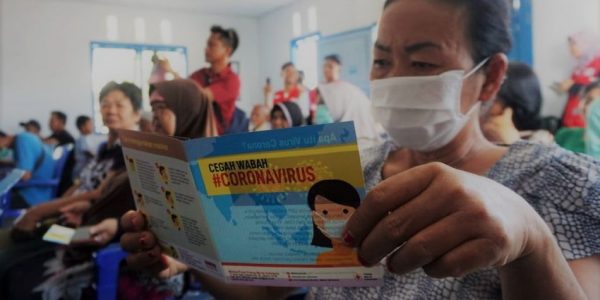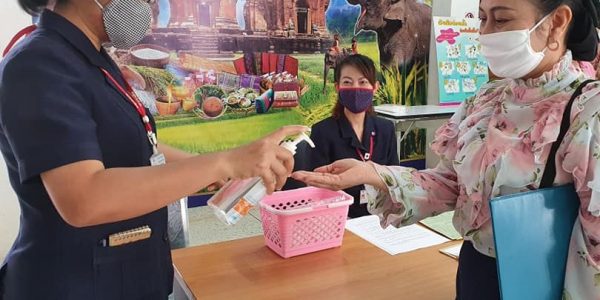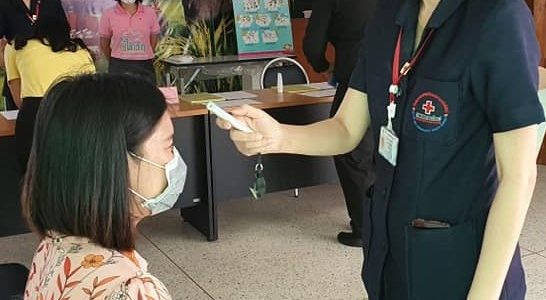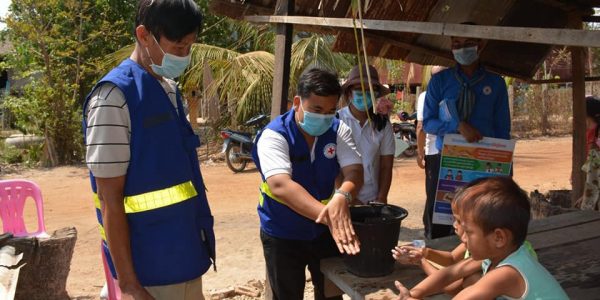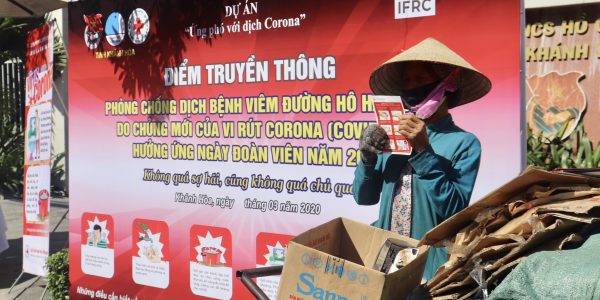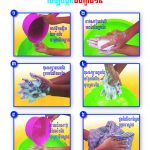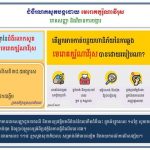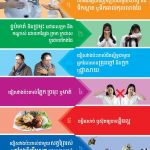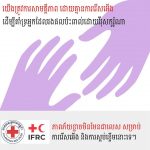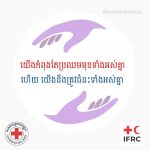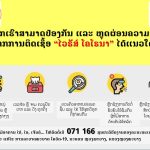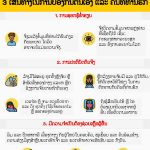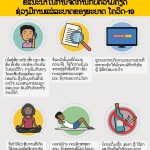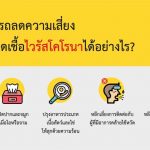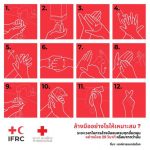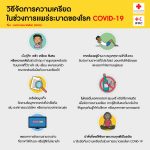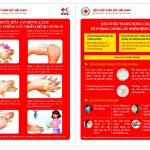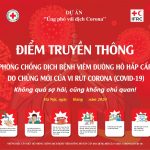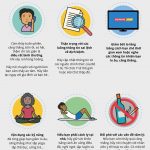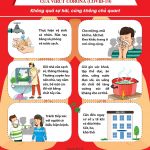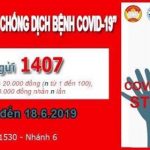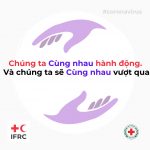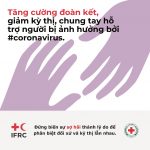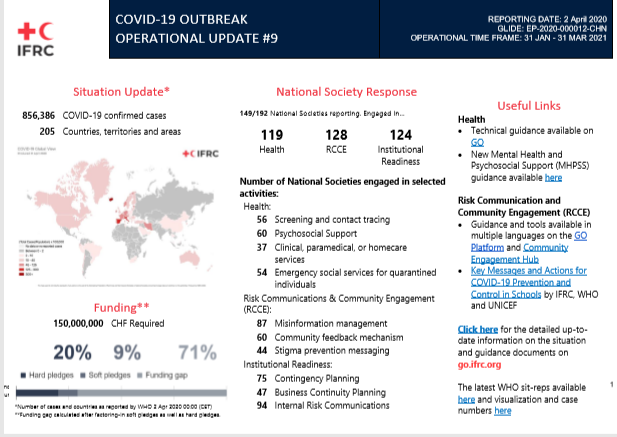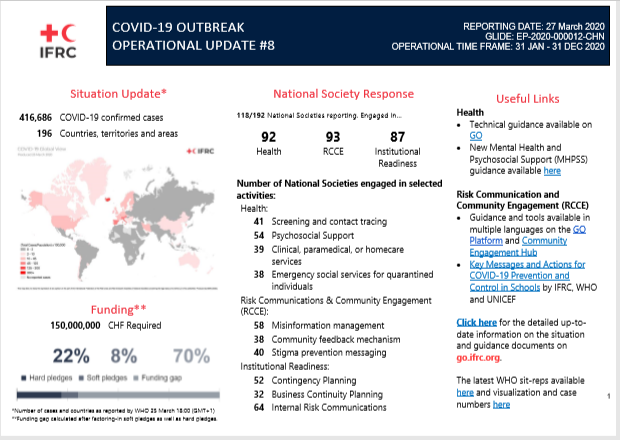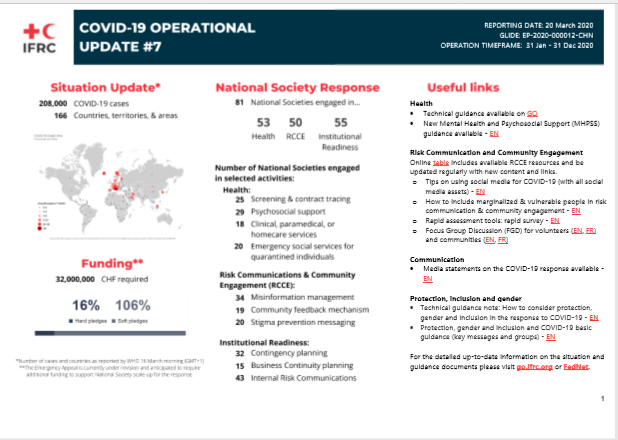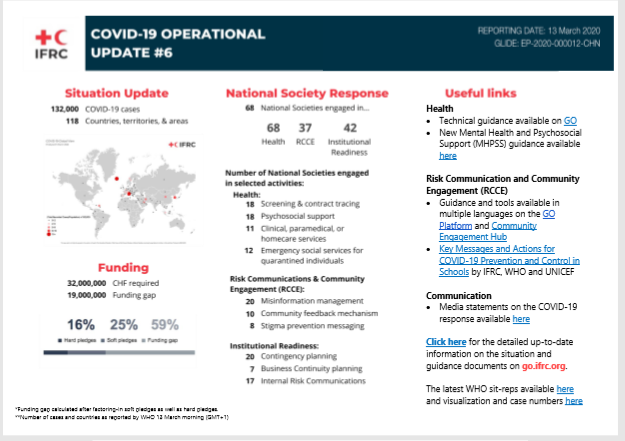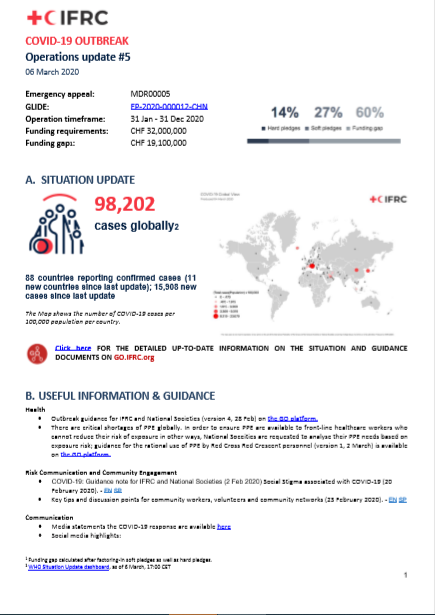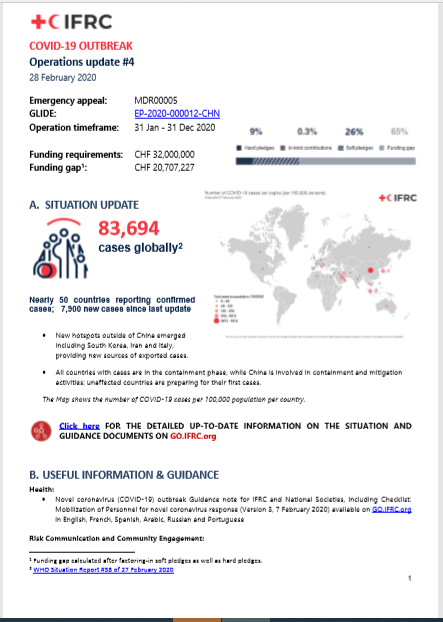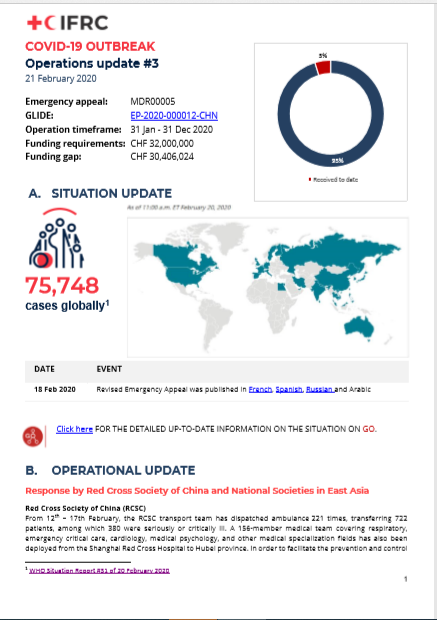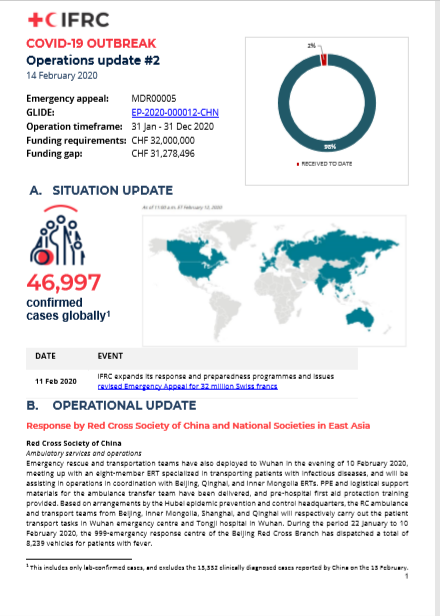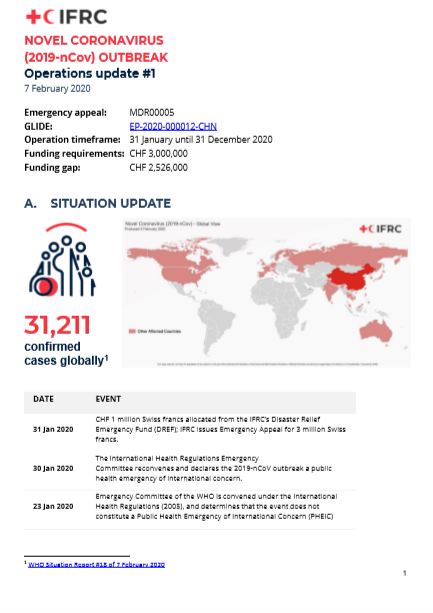COVID-19 and IFRC's Response
On 31 December 2019, WHO was informed of a cluster of cases of pneumonia of unknown cause detected in Wuhan City, Hubei Province of China; the first cases presented symptoms in early December. These people experiencing pneumonia were later determined to have been infected with a novel Coronavirus, subsequently named COVID-19.
| 31 December 2019 | The Government of China reported a cluster of cases of pneumonia of unknown cause in Wuhan, Hubei Province. |
| 9 January 2020 | WHO announces that the outbreak in Wuhan is caused by a previously unknown type of coronavirus. The virus is temporarily called 2019-nCoV. |
| 30 January 2020 | The WHO International Health Regulations Emergency Committee declares the 2019-nCoV outbreak a public health emergency of international concern (PHEIC). |
| 31 January 2020 | CHF 1 million allocated from the IFRC’s Disaster Relief Emergency Fund (DREF); IFRC issues preliminary Emergency Appeal for CHF 3 million. |
| 03 February 2020 | WHO launches its 2019 Novel Coronavirus (2019‑nCoV) Strategic Preparedness and Response Plan |
| 11 February 2020 | IFRC revises the Emergency Appeal upwards to CHF 32 million to cover the increased scale and scope of the epidemic |
| 11 March 2020 | WHO declares COVID-19 is a global pandemic |
| 25 March 2020 | The UN launches its Global Humanitarian Response Plan COVID-19 |
| 26 March 2020 | IFRC launches its revised Emergency Appeal |
On 11 March 2020, WHO declared COVID-19 a global pandemic. The global impact of COVID-19 has already been significant, and it represents the most serious global health threat resulting from a respiratory virus since the 1918 influenza pandemic.
The IFRC and its member Red Cross and Red Crescent National Societies stand in solidarity with these people. We are front-line community responders to this pandemic worldwide. With more than 160’000 local offices and over 13 million highly trusted volunteers and staff, we are uniquely placed to support people and their communities to prepare for and respond to this global emergency. Combining expertise as health and humanitarian actors that work in their own communities, the IFRC and its members offer a global outlook and tools, combined with a local presence and domestic response in all regions of the world.
The IFRC and its 192-member Red Cross and Red Crescent member National Societies are responding to this pandemic in accordance with our statutory mandate. The Red Cross and Red Crescent National Societies are mandated to support the public authorities in the prevention of disease, the promotion of health and the mitigation of human suffering for the benefit of the community.
In Asia Pacific some countries epidemic curve has already peaked with ongoing local transmission. Several countries are showing rapid increase in number of new cases with more than 19 countries in the region having confirmed local transmission. National Societies as auxiliary to the government have worked in preparedness and containment efforts through supporting screening, contact tracing, quarantine facilities, ambulance services, and disseminating health messages. National Societies are working to provide psychological support to cut down the anxiety and fear among the population. They also emphasize support to older population. National Societies are also developing targeted strategies to support populations of concern like people living in informal settlements, migrants, etc. Details of the response by National Societies and IFRC all over the world including in the Mekong region, can be found in the Operational Updates below.
Please visit IFRC’s Go Platform for the latest information related to the outbreak. Non-public information on GO is available to those who log in.
For the latest press releases , please visit IFRC’s website.
COVID-19 Prevention Messages
Cambodia
Laos
Thailand
Viet Nam
Contact Information
For information regarding IFRC’s COVID-19 programs in the Mekong region (Cambodia, Laos, Thailand and Vietnam), please contact : Mr.Christopher Rassi, Head of Country Cluster Support Team (HoCCST), Bangkok. Email : christopher.rassi@ifrc.org
![]()


